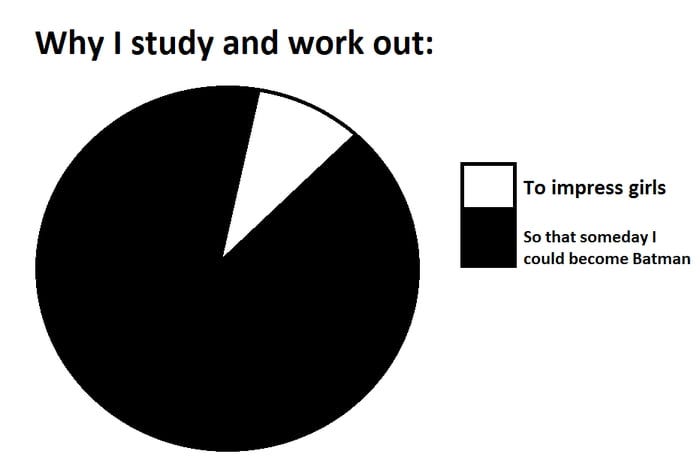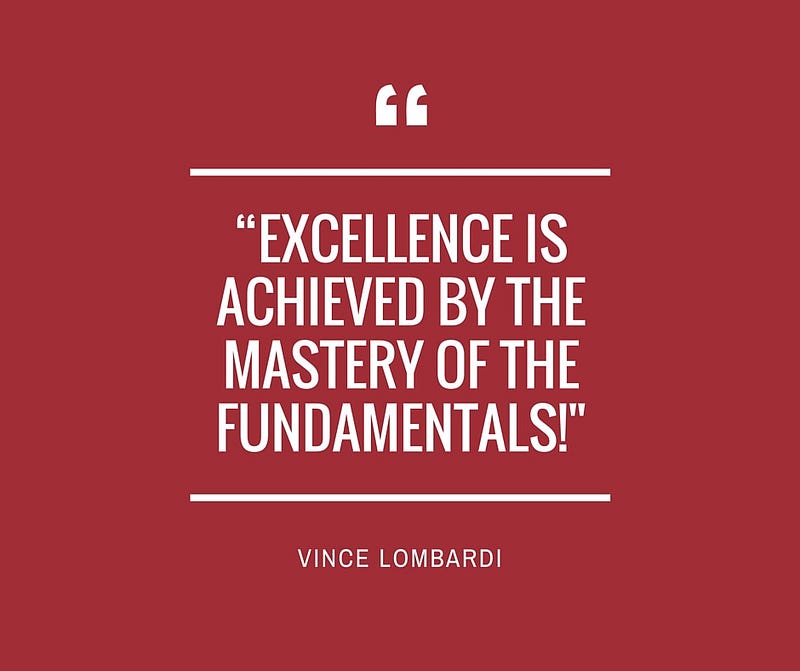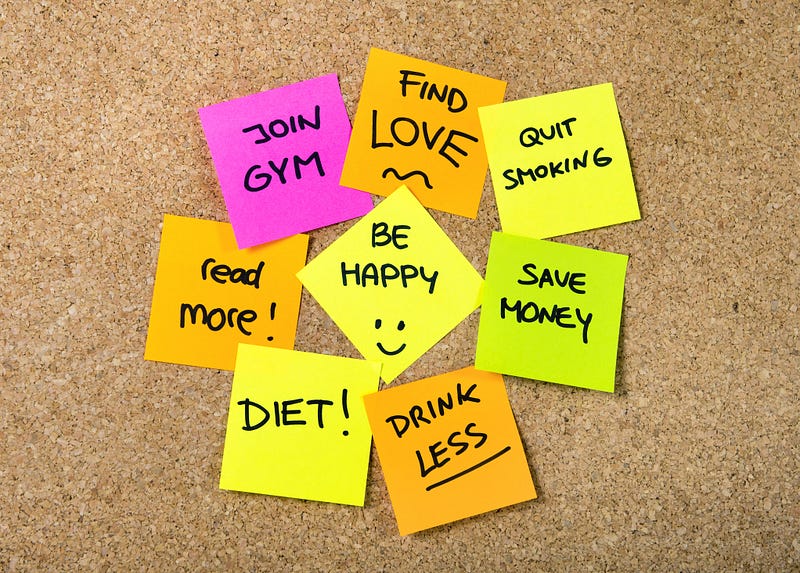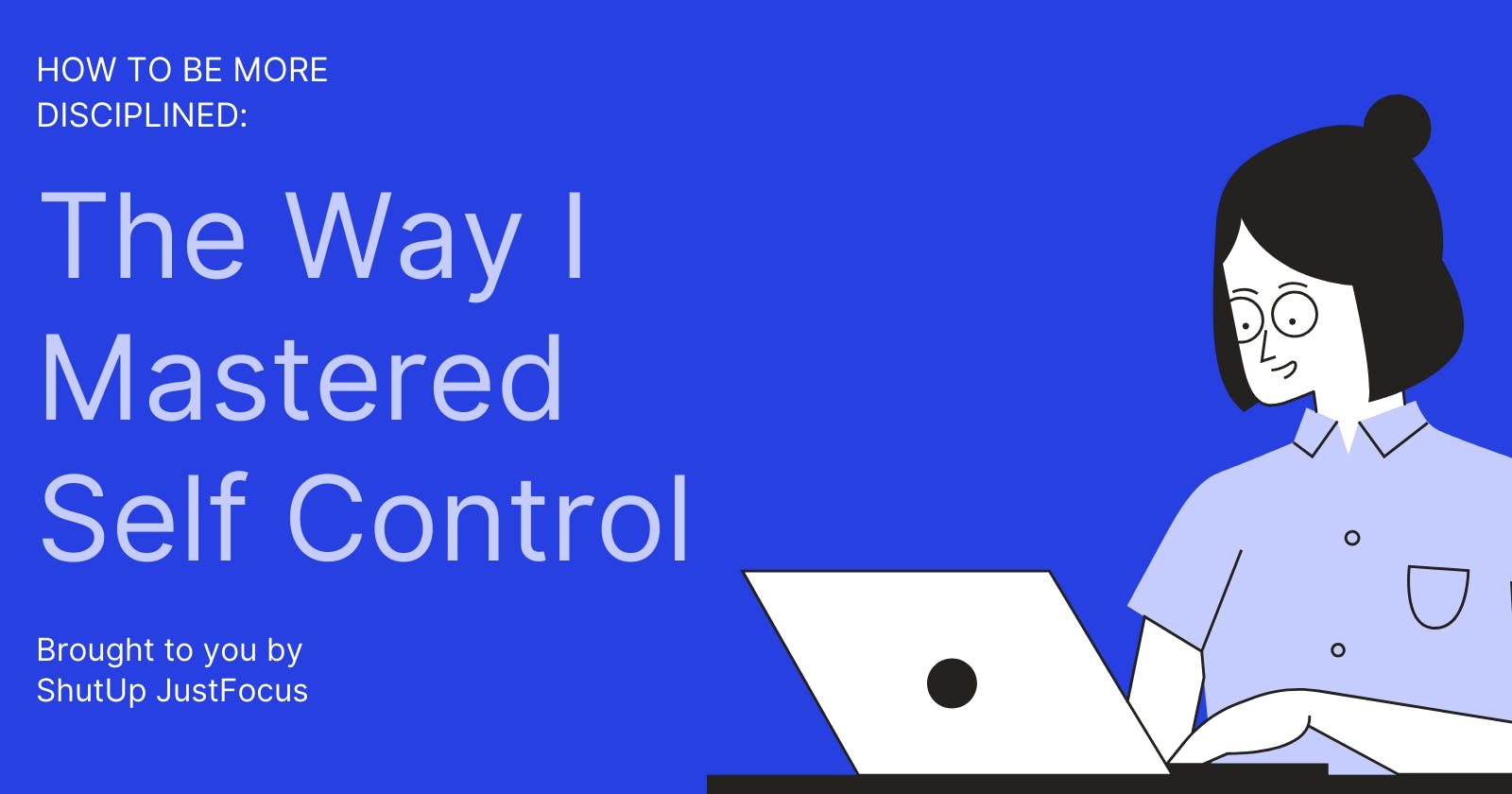I want to start by asking and answering two questions.
Number one: What exactly is Discipline?
And
Number two: How does it differ from motivation?
Because I think a lot of people get confused between these two terms. To start, I want to share a quote from the writer Samuel Thomas Davies because it answers both those questions in a pretty tidy way.
“Self-Discipline is about leaning into resistance. Taking action despite how you feel. Living a life by design not by default. But most importantly, it’s acting by your thoughts-not your feelings.“
Put another way, motivation is your overall level of desire to do something, whereas discipline is your ability to do it regardless of how you feel. And for any of you who’ve ever woken up thinking, I don’t feel like it, which is all of you, myself included, you can see now how important self-discipline is. It’s building that baseline that allows you to act by your long term goals, no matter how motivated you feel. So, with that being said, Let’s cover six important strategies for building your self-discipline.
1. Mindset

Image source: Pinterest
And we are going to start one that doesn’t seem much tangible or actionable at first, but stick with me here, because this is a mindset shift that I’ve found more helpful than any other self-discipline technique I’ve tried in recent memory.
To put it simply, when you’re trying to change your behavior forget about the goal you’re trying to achieve, the external outcome and instead focus on the change in identity you want to be in. This is a concept I first read about in James Clear’s book Atomic Habits, which I highly recommend, by the way. And there is this passage near the beginning of the book that encapsulates it well. So I’m just going to mention the lines here.
“Imagine two people resisting a cigarette. When offered a smoke, the first person says, ‘No Thanks, I am trying to quit’. It sounds like a reasonable response, but this person still believes they are a smoker who’s trying to be something else. They are hoping that their behavior will change. While carrying around the same beliefs, the second person says ‘No thanks, I am not a smoker’. It’s a small difference, but the statement signals a shift in identity”
Smoking was a part of their former life, not their current one. They no longer identify as someone who smokes.
So, the general idea here is that once you’ve embraced a change in your identity, you are going to find yourself acting in alignment with that change. And if you are wondering why exactly this happens, the third chapter of Robert Cialdini’s book Influence, The Psychology of persuasion, has a great explanation for it. Essentially, humans feel this natural compulsion to act consistently with their past decisions. As he writes in the book,
“Once we have made a choice or taken a stand, we will encounter personal and interpersonal pressures to behave consistently with that commitment. Those pressures will cause us to respond in ways that justify our earlier decisions.”
And shifting my mindset has been incredibly helpful in the past couple of months. And the first way I implemented it was by starting to think of myself as an athlete. I have a laundry list of athletic goals but I never took that big leap forward and start thinking of myself as an athlete. And there were some impostor syndrome reasons for this. But after reading that passage in that book, I decided to take that leap and start thinking of myself as an athlete, not just as somebody who does active things. And that shift in mindset has done wonders for my level of self-discipline in many different areas, from working out regularly no matter what, training harder during the sessions, improving my diet, which has been a lot better than it used to be over the past couple of years.
So, seriously if you take nothing else from this article, I am putting this first for a reason, start thinking about behaviour change in terms of the identity that you want to embody rather than the goals that you want to achieve.
2.Recalling the cause

Photo by Author
Alright, Number two is to frequently remind yourself of why you are being disciplined in the first place. At the end of the day, we have to have a strong WHY for our actions if we want to do them consistently. And every time I think about the concept, I am reminded of a story about the actor, Jim Carrey, and it goes like this.
After he had arrived in Hollywood and he was still kind of an improvised actor, one day he took out a napkin and he drew himself a cheque made out to himself for $10 million, and post-dated for 10 years in the future. And then he put that check in his wallet so that every time he would bring out his wallet, he could see it and remind himself of why he was working so hard, what he was working towards.
And this is something you might find very helpful to do as well. Try writing down your goal or the identity you want to assume maybe on a sticky note next to your desk or by your computer so you can see it every single day and know that this is why I am building my self-discipline, this is the reason for all the work I am putting in.
3. Loving the discomfort

Image source: cute wallpapers
Number three is to find ways to embrace discomfort and embrace the resistance you feel towards doing something that takes hard work or that’s unpleasant.
Just like going to an actual gym and lifting weight makes you better at lifting weights in the future, and able to lift more weight the next time you go in, every time you embrace discomfort, you are essentially doing a rep of the exercise that is self-discipline because it is a skill that can be learned, it is a muscle that can be built over time. As you go through your daily life, find ways to embrace discomfort. It could be signing up for a 6:00 AM ROTC fitness class, it could be taking the stairs instead of the elevator. Whenever your brain throws up that I don’t feel like it as an excuse, that is an opportunity to build that self-discipline muscle, and you should take it.
4. Nail the fundamentals

Photo by Author
Okay, the fourth item of the list which is to target the fundamentals first, and by the fundamentals I mean the biological necessities of life, your sleep, your nutrition, and your habits.
These are all crucial to pay attention to because the part of your brain that handles executive functioning, that part that regulates your desires and your impulses, requires a lot of energy and regular rest to function at peak levels. Always remember that you are first and foremost a collection of biological systems all of which require the right inputs if you want to get the best outputs out of them. And, I know, it’s easy to picture the brain as separate from all of this, as existing in this metaphysical realm where the only needed fuel sources are motivation, and determination, and wholesome memes. But, the brain needs rest, and it needs exercise, and it needs the right balance of nutrients just as the rest of your body does. So, if you are sleep deprived, or you haven’t gotten enough exercise regularly, or your diet is crap, that is where you should focus your discipline first. I sleep 8 hours daily now after realizing that I have my own health issues which can be pushed down by healthy management.
5. Meditate

Image source: pinterest
The fifth item on the list is a painful one for me to say because I hate doing it but, you may want to try meditation.
And the reason you might want to do this is that meditation has been shown scientifically to help people improve their levels of self-discipline. A 2013 study at Stanford University showed that people who went through compassion training, which was a specific meditation program were better able to regulate their emotions afterwards. And this is crucial for remaining disciplined and being able to make a rational decision. Now an easy way to get started would be by using guided meditation, which you can use through apps like headspace and calm, or through many free videos on YouTube. But the form of meditation that I have always practiced, which I think is better for the development of self-discipline specifically is a form of what’s called a Zazen meditation,
where I simply sit and concentrate on my breath with my eyes closed. And when my attention is inevitably pulled away by a random thought, I work to notice that, and let that thought go, and then bring my attention back to my breath.
And doing this over the long term has helped with both self-discipline and concentration. And like I said, I am not a huge fan of meditation, it’s probably the self-development practice that I hate doing the most, but the benefits of doing so are undeniable.
6. New Habits

Image source: pinterest
And that brings us to our final item on the list, which is to practice building new habits. Now like I said earlier, building new habits is kind of a separate discipline in the overall pursuit of changing your behavior. But the initial stages of building a new habit often require self-discipline, because the behavior isn’t automatic yet. So, this can be a great way to, not only establish a new habit but become more disciplined in the process. Or maybe learn something new like.. Programming… Just saying.
So these were the 6 most beneficial way of getting your self into a disciplined life. Because discipline in life is very very important.
Hope you liked going through this small effort.
You can check out my other writings in my Medium PROFILE for some more writings. I have some of my favourites like Kardashev’s Civilization Scale Analysis: The Type of Civilization We Really Are and This Is About The Extraordinary Journey of One of The Greatest Human Creations- The Voyager.
You check me out on Facebook Twitter
Thank You. I love you. You know that there are people around you who loves you. They won't tell you that but they will miss you when you will be gone.
Take care.
